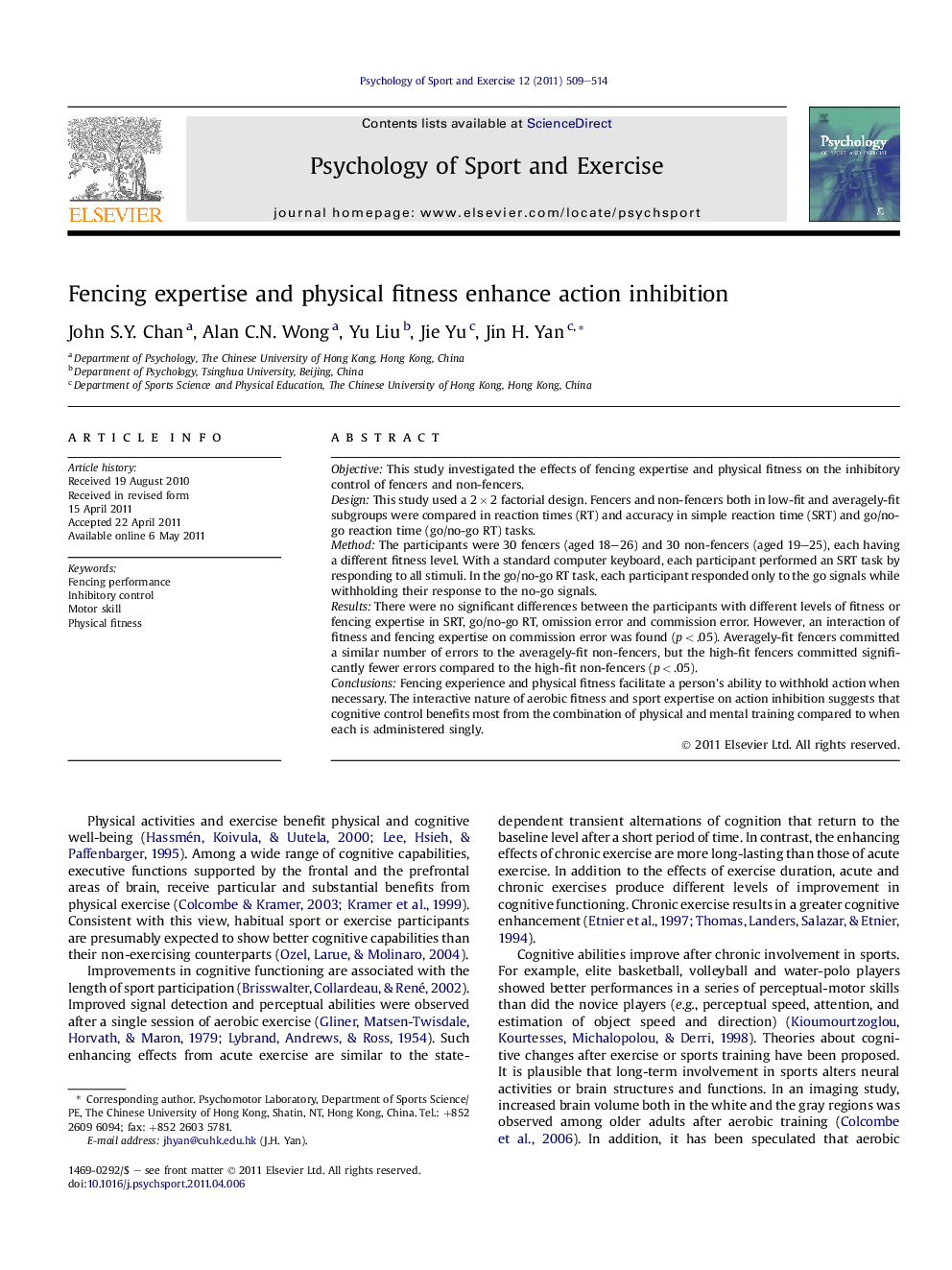| کد مقاله | کد نشریه | سال انتشار | مقاله انگلیسی | نسخه تمام متن |
|---|---|---|---|---|
| 894639 | 1472133 | 2011 | 6 صفحه PDF | دانلود رایگان |

ObjectiveThis study investigated the effects of fencing expertise and physical fitness on the inhibitory control of fencers and non-fencers.DesignThis study used a 2 × 2 factorial design. Fencers and non-fencers both in low-fit and averagely-fit subgroups were compared in reaction times (RT) and accuracy in simple reaction time (SRT) and go/no-go reaction time (go/no-go RT) tasks.MethodThe participants were 30 fencers (aged 18–26) and 30 non-fencers (aged 19–25), each having a different fitness level. With a standard computer keyboard, each participant performed an SRT task by responding to all stimuli. In the go/no-go RT task, each participant responded only to the go signals while withholding their response to the no-go signals.ResultsThere were no significant differences between the participants with different levels of fitness or fencing expertise in SRT, go/no-go RT, omission error and commission error. However, an interaction of fitness and fencing expertise on commission error was found (p < .05). Averagely-fit fencers committed a similar number of errors to the averagely-fit non-fencers, but the high-fit fencers committed significantly fewer errors compared to the high-fit non-fencers (p < .05).ConclusionsFencing experience and physical fitness facilitate a person’s ability to withhold action when necessary. The interactive nature of aerobic fitness and sport expertise on action inhibition suggests that cognitive control benefits most from the combination of physical and mental training compared to when each is administered singly.
► No differences between subjects of different fitness or fencing expertise in action inhibition.
► Averagely-fit fencers committed similar number of errors to averagely-fit non-fencers.
► High-fit fencers committed significantly fewer errors than high-fit non-fencers.
► Fencing experience and physical fitness improved the ability to withhold action when necessary.
► Cognitive control benefits the most from the combination of physical and mental training.
Journal: Psychology of Sport and Exercise - Volume 12, Issue 5, September 2011, Pages 509–514